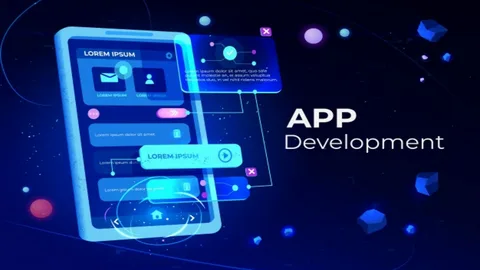Internet and Telecom
Exploring the Prospects for a Comprehensive Overhaul of Telecom Regulations in the US

Introduction
As our world becomes increasingly connected, the telecommunications industry has never been more important – and yet, despite its critical role in everyday life, regulations surrounding telecom have remained stagnant for years. But with new technologies constantly emerging and evolving consumer needs shaping the industry at a breakneck pace, many experts are calling for a comprehensive overhaul of telecom regulations in the US. In this post, we’ll dive into what such an overhaul might look like – and why it could be crucial to ensuring that Americans have access to reliable and affordable communications services in years to come.
A Brief History of Telecom Regulation in the US
Telecommunications are regulated at the federal, state, and local levels in the United States. The history of telecom regulation in the US is complex and intertwined with the development of communication technology.
At the federal level, telecommunications are regulated by the Federal Communications Commission (FCC). The FCC was created by Congress in 1934 to regulate interstate and international communications. The FCC’s primary role is to ensure that all Americans have access to telephone service and other electronic media.
The FCC has jurisdiction over all aspects of telecommunications, including wireline, wireless, satellite, cable TV, and Internet services. The FCC also regulates consumer protection issues related to telecommunications. For example, the FCC regulates rates charged by telephone companies for service and establishes rules governing how telephones can be used (for example, there must be a separation between commercial and residential phones).
The FCC’s authority is supplemented by state commissions that have jurisdiction over specific areas of telecommunications. For example, California has an agency called the California Public Utilities Commission (CPUC) that regulates telephone companies within that state.
In addition to regulating telecoms at the federal level, states also have their own laws regulating telecommunications. For example, every state has laws prohibiting discrimination on the basis of race or gender in phone sales or services. State commissions also often have authority over prices charged for telecom services.
Local governments also play a role in telecom regulation. Municipalities may provide public utilities such as broadband Internet access or telephone service. Or they
The Role of Telecom Regulation in the Economy
The Telecom Act of 1996 was the first significant overhaul of telecommunications regulation in over 30 years. The act created a competitive market for telecommunications services and opened up the system to new players such as cable modem providers and VoIP providers. However, the act also created outdated regulations that inhibit innovation and stifle competition.
One of the main challenges facing policymakers is how to achieve a balance between encouraging innovation while ensuring that the public is protected from harmful practices. Regulatory interventions such as price caps or government ownership can have negative effects on competition, while overly restrictive regulation can prevent new entrants from entering the market or lead to monopolies.
A comprehensive overhaul of telecom regulations would need to take into account the evolving nature of the industry and consider innovative ways to address concerns like network neutrality and data privacy. It would also need to reflect shifts in consumer behavior; for example, young people are increasingly using mobile devices and apps to access entertainment and social media content. policymakers must be flexible enough to adapt their approach as technology evolves so that both consumers and innovators are able to reap the benefits of an open market for telecommunications services.
The Current State of Telecom Regulation in the US
Telecommunications providers and consumers in the United States are currently facing a number of challenges with telecom regulation. These include outdated regulations, slow and outdated infrastructure, and insufficient competition. There is a growing need for a comprehensive overhaul of telecommunications regulations in the US to address these challenges.
One challenge with telecom regulation is that it is often out of date. Regulations from the early days of the telephone system are still in place, but they are not reflective of today’s technology or marketplace. For example, many regulations related to telecommunications services focus on landline service rather than mobile services. This limits competition and increases prices for consumers.
Another challenge with telecom regulation is that it is slow to change. Regulatory agencies can take years to make decisions about rules or changes, which can impact how quickly new technology develops or how quickly companies can expand their businesses. This can result in low levels of competition and high prices for consumers.
Additionally, telecommunications providers in the United States often have limited access to important infrastructure. This limits their ability to offer new services or expand their reach into new markets. In some cases, this lack of infrastructure has resulted in barriers to entry for new providers, which has made it difficult for them to compete against incumbents.
Finally, there is an insufficient level of competition in the US telecom market. Too few providers provide enough options for consumers, which leaves them with little choice when it comes to selecting a provider or paying unreasonable prices for services. This lack of competition can
Exploring the Prospects for a Comprehensive Overhaul of Telecom Regulations in the US
The current telecommunications regulations in the United States are outdated and need to be overhauled in order to keep up with the changing technology landscape. The FCC is currently working on a proposal that would create a new regulatory framework for broadband internet access and advanced telecommunications services. However, there are many hurdles that need to be overcome before this proposal can be finalized.
One of the main challenges is that the FCC has not been able to come up with a clear definition of what an “advanced telecommunications service” is. This definition is important because it will determine which services are subject to regulation. Without a clear definition, it will be difficult for the FCC to implement specific regulations without also regulating other services that may not pose a threat to public safety or the economy.
Another hurdle is that there is significant opposition from various stakeholders in the US telecom industry. Some of these stakeholders are concerned about how proposed regulations could affect their business models, while others are concerned about the impact on consumer privacy and freedom of speech. It will require significant compromise on both sides in order for comprehensive telecom reform to pass muster with lawmakers and regulators.
Conclusions and Recommendations
The FCC’s Open Internet Order was landmark regulatory action to protect net neutrality and create a level playing field for all web entrepreneurs. The order prohibited broadband providers from blocking, throttling or discriminating against lawful content and established strong transparency requirements that require companies to disclose any practices that affect online traffic.
However, the order has had a number of limitations. For example, the rule does not apply to voice services and it does not apply to mobile operators. Additionally, the FCC did not include any conditions on how broadband providers should operate in light of these protections. This leaves open the possibility that broadband providers could engage in discriminatory behavior without penalty.
There is now a growing call for Congress to take more concrete steps to protect net neutrality and ensure that broadband providers operate in a fair and non-discriminatory manner. In July 2017, Congressman Mike Doyle (D-PA) introduced the Broadband Consumer Protection and Competition Act (H.R. 3261), which would establish comprehensive net neutrality regulations at the federal level. Similar bills have been introduced in previous sessions of Congress but have failed to gain traction due to concerns from telecommunications providers about ISPs being subjected to onerous regulation. However, with public opinion strongly in favor of net neutrality and greater awareness of ISP practices that violate these principles, lawmakers may be more willing to take on this challenge in 2018.
The FCC’s Open Internet Order was landmark regulatory action to protect net neutrality and create a level playing field for all web
Digital Development
Unlocking Success: Essentials of Tailored Mobile App Development

The modern business landscape demands agility, innovation, and a constant willingness to adapt to shifting consumer expectations. Mobile applications have become one of the most powerful tools available to businesses of all sizes, enabling them to connect with customers, optimize workflows, and unlock new revenue streams.
However, not all mobile app development services are created equal. To truly capitalize on the potential of mobile technology, businesses need a partner that understands their unique needs and has the expertise to deliver a customized solution. That is precisely what a top mobile app development company provides — a combination of deep technical knowledge, strategic thinking, and an unwavering focus on results.
Grasping Business Requirements Prior to Coding Anything
The most effective mobile app development services begin not with coding, but with listening. Every business has its own goals, challenges, customer base, and competitive pressures. A development partner that takes the time to understand these nuances is far more likely to deliver an application that creates real value. During the initial discovery phase, experienced developers work closely with stakeholders to gather requirements, identify pain points, and define success metrics.
This consultative approach distinguishes a top mobile app development company from vendors that offer one-size-fits-all solutions. By deeply understanding the business context, developers can make informed decisions about technology choices, feature prioritization, and user experience design that align with strategic objectives rather than purely technical preferences.

Custom Development vs. Off-the-Shelf Solutions
One of the first decisions businesses face when planning a mobile application is whether to opt for custom development or an off-the-shelf product. While pre-built solutions may seem attractive due to their lower upfront costs, they often fall short when it comes to meeting specific business requirements, integrating with existing systems, or differentiating from competitors. Custom development, on the other hand, gives businesses complete control over features, design, and functionality.
Development firms help clients assess these trade-offs objectively and recommend the approach that best suits their needs. In many cases, a hybrid approach is optimal — leveraging existing frameworks and libraries to accelerate development while customizing the application to meet unique business requirements. This pragmatic approach strikes the right balance between cost efficiency and bespoke functionality, ensuring that businesses get maximum value from every dollar invested.
Technology Stacks Suited to Your Business
The technology stack underlying a mobile application has a profound impact on its performance, scalability, and long-term maintainability. Professional developers stay current with the latest technologies and frameworks, enabling them to recommend the best stack for each specific use case. For businesses targeting both iOS and Android platforms simultaneously, cross-platform frameworks such as Flutter and React Native offer significant advantages in terms of development speed and code reusability.
For applications with complex backend requirements — such as real-time data processing, machine learning integration, or high-volume transaction handling — experienced developers will architect robust server-side solutions using scalable cloud platforms and modern API frameworks. Technoyuga brings this level of technical depth to every project, ensuring that the chosen technology stack not only meets current demands but also supports the application’s long-term growth trajectory without requiring costly rewrites.
User-Centric Design as a Business Differentiator
In a marketplace where users have thousands of apps to choose from, design quality is a critical differentiator. An application that is visually appealing, easy to navigate, and responsive to user needs will consistently outperform a technically superior but poorly designed competitor. Professional mobile app development services always include dedicated UX research and UI design phases that place the end user at the center of every design decision, from color palettes and typography to navigation flows and micro-interactions.
Design is not just about aesthetics — it is about creating experiences that guide users toward desired actions, reduce friction, and build brand loyalty. A top mobile app development company will invest in user research, create detailed personas, build interactive prototypes, and conduct usability testing before finalizing the design. This investment pays dividends in the form of higher user adoption rates, better retention, and stronger app store reviews.
Integration With Existing Business Systems
Very few businesses operate in isolation. Most have existing CRM platforms, ERP systems, payment gateways, logistics tools, and marketing automation platforms that must integrate seamlessly with any new mobile application. Experienced developers understand this reality and have deep expertise in building and managing complex API integrations. They design integration architectures that ensure reliable data flow between systems while maintaining performance and security throughout.
The ability to integrate effectively with existing business infrastructure is one of the defining capabilities of a top mobile app development company. It requires not only technical skill but also a thorough understanding of enterprise IT environments and the ability to navigate the complexities that inevitably arise when connecting disparate systems across different vendors and technology generations.
Ensuring Quality Through Rigorous Testing
A mobile application that crashes, loads slowly, or behaves unpredictably will quickly lose users and damage a brand’s reputation. This is why rigorous quality assurance is an indispensable component of any professional mobile app development service. Testing must cover a wide range of scenarios including functional testing, performance testing under load, compatibility testing across devices and operating system versions, security vulnerability scanning, and user acceptance testing.
Professional development teams invest heavily in QA infrastructure and maintain dedicated testing specialists who work in parallel with engineering. This proactive approach to quality catches issues early in the development cycle, dramatically reduces the cost of fixes, and ensures that the application performs reliably from the moment it reaches users’ hands.
Post-Launch Support and Continuous Improvement
Launching a mobile application is not the end of the journey — it is the beginning. User behavior data, performance analytics, and direct feedback will reveal opportunities for improvement and new features that can enhance value over time. A reliable development partner will provide ongoing maintenance and support services that keep the application secure, performant, and aligned with evolving business needs.
Continuous improvement cycles, regular updates, and proactive monitoring are all hallmarks of a development partner genuinely invested in the long-term success of your application. Businesses that maintain this kind of ongoing relationship with their development partner are consistently better positioned to adapt to market changes and capitalize on emerging opportunities.
In summary, mobile app development services tailored to specific business needs deliver far greater value than generic solutions. By partnering with the right development firm that invests in understanding your goals, applies the right technology, designs for users, and supports you long after launch, you set your business up for sustained digital success.
Digital Development
Digital Biomarkers Market Report 2035 | Size, Share & Trends

The Digital Biomarkers Market is rapidly evolving, offering critical insights into its current dynamics, structural components, and regional trends. This report targets stakeholders, vendors, researchers, and policymakers who seek an accurate understanding of the market landscape without delving into speculative analysis. It reflects real-time market conditions with validated data and established methodologies, supporting strategic decision-making in a post-pandemic world.
Key Questions Addressed
The report aims to answer several vital questions:
- What are the major drivers for the Digital Biomarkers Market?
- What is the current size of the market?
- Who are the key players operating in this industry?
- What will the overall market size be in 2035?
- What is the future outlook for the Digital Biomarkers Market?

Market Segmentation
To facilitate a detailed analysis, the Digital Biomarkers Market is categorized across several key dimensions:
- Key Report Attributes
- Historical Trend
- Forecast Period
- Future Trend
- Market Size for 2025
- Market Size for 2035
- Compound Annual Growth Rate (CAGR) (till 2035)
- Type of Product (Software, Applications, Wearables, etc.)
- Purpose of Solution (Diagnosis, Early Detection, Monitoring, Predictive Insights)
- Type of Biomarker (Cognitive, Idiosyncratic, Physiological, Vocal, and Others)
- Therapeutic Area (Autoimmune, Cardiovascular, Infectious, Mental Health, Neurological, Respiratory, Substance Abuse, etc.)
- Business Model (B2B and B2C)
- Key Geographical Regions
The segmentation allows for a nuanced understanding of this growing market.
Market Size and Forecast
The global digital biomarkers market was valued at USD 5.6 billion in 2024, with projections estimating it to reach USD 7.4 billion in 2025 and USD 35.8 billion by 2035. This growth represents a significant CAGR of 17.0% during the forecast period. Key drivers include an increase in chronic diseases, the aging population, and advancements in digital health technologies.
Regional Analysis
The market is geographically segmented into five principal regions:
- North America: Including the U.S. and Canada
- Europe: Comprising the U.K., Germany, France, Italy, and the Rest of the EU
- Asia Pacific: Encompassing India, China, Japan, South Korea, Australia, and the Rest of APAC
- Latin America: Covering Brazil, Argentina, Chile, and other countries
- Middle East & Africa: Including Saudi Arabia, U.A.E., South Africa, and more
This regional breakdown is crucial for understanding production dynamics, market presence, trade activities, and specific adoption trends across different geographical areas.
Competitive Landscape
The report highlights leading companies in the Digital Biomarkers Market, providing a thorough analysis of their current strategies, product portfolios, and market presence. Key players include notable companies from North America, Europe, Asia-Pacific, and MENA regions.
- Key Players: Companies like AliveCor, Biogen, and Empatica are examined concerning their strategic initiatives, partnerships, production capacities, and focus on innovation.
Strategic Frameworks
To enhance market understanding, the report employs the following analytical tools:
- SWOT Analysis: Evaluates internal strengths, weaknesses, opportunities, and threats of market players.
- Porter’s Five Forces Analysis: Assesses competition intensity, supplier and buyer power, threats of new entrants, and substitution risks.
These frameworks clarify market strengths and the external pressures impacting strategic decisions.
Insights from Market Data
The study reveals that:
- The wearables segment currently captures the largest market share (50%), driven by patient preferences for virtual consultations and remote monitoring technologies.
- The monitoring purpose holds the highest share of the market, set to dominate the forecast period, while predictive insights are projected to capture 30% of the market by 2035, thanks to AI and machine learning advancements.
- Neurological disorders account for over 35% of current applications for digital biomarkers.
Recent Developments in Root Analysis
Recent initiatives in the digital biomarkers landscape underline the sector’s dynamism:
- In September 2024, Koneksa announced a collaboration with Regeneron to utilize digital biomarkers for remote disease progression measurement in neurodegenerative disorders.
- EarliTech Diagnostics raised USD 21.5 million in a Series B funding round in April 2024.
- In March 2024, Indivi partnered with Biogen to develop digital biomarkers for Parkinson’s disease treatment.
These developments highlight the sector’s continuous evolution and promise.
Challenges and Future Outlook
While the digital biomarkers market offers significant growth potential, it also faces challenges, including technological adoption barriers, regulatory hurdles, and the need for reliable data. Stakeholders must navigate these complexities while leveraging emerging opportunities, such as advancements in AI integration and increasing patient engagement.
The report indicates that the Digital Biomarkers Market is on an upward trajectory, shaped by innovations and adaptations in clinical practice. Its integration into healthcare processes aims to enhance disease diagnosis, predict complications, and improve overall patient outcomes.
Conclusion
This comprehensive report serves as a reliable reference for understanding the present dynamics of the global Digital Biomarkers Market. By refraining from speculative forecasts and instead providing a data-backed evaluation, it positions stakeholders to make informed, strategic decisions.
About Roots Analysis
Roots Analysis specializes in delivering insights across various sectors, including healthcare, pharmaceuticals, and biotech. With over a decade of experience and a portfolio of more than 750 clients, including Fortune 500 companies and innovative startups, they are a trusted partner for market intelligence.
This detailed overview of the Digital Biomarkers Market encapsulates essential findings, insights, and projections that stakeholders need to understand this evolving landscape.
Digital Development
The Right SEO Agency for Hospitality: Key Factors to Consider

Choosing the right seo agency for hospitality can feel overwhelming. There are so many agencies promising top rankings, more traffic, and higher bookings. Every agency claims to deliver fast results, but not every SEO agency for hospitality truly understands the unique challenges of the hotel and travel industry.
Hotels, resorts, boutique stays, and travel brands have very specific marketing needs. The way people search for hotels is very different from how they search for other services. Travelers look for locations, amenities, experiences, reviews, pricing, and availability often all at the same time. Because of this, a general SEO approach is not enough. You need a specialized SEO agency for hospitality that understands booking behavior, seasonal trends, and destination-based searches.
-
Business3 years ago
Cybersecurity Consulting Company SequelNet Provides Critical IT Support Services to Medical Billing Firm, Medical Optimum
-
Business3 years ago
Team Communication Software Transforms Operations at Finance Innovate
-
Business3 years ago
Project Management Tool Transforms Long Island Business
-
Business2 years ago
How Alleviate Poverty Utilized IPPBX’s All-in-One Solution to Transform Lives in New York City
-
health3 years ago
Breast Cancer: The Imperative Role of Mammograms in Screening and Early Detection
-
Sports3 years ago
Unstoppable Collaboration: D.C.’s Citi Open and Silicon Valley Classic Unite to Propel Women’s Tennis to New Heights
-
Art /Entertainment3 years ago
Embracing Renewal: Sizdabedar Celebrations Unite Iranians in New York’s Eisenhower Park
-
Finance3 years ago
The Benefits of Starting a Side Hustle for Financial Freedom






























